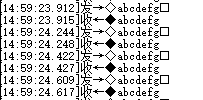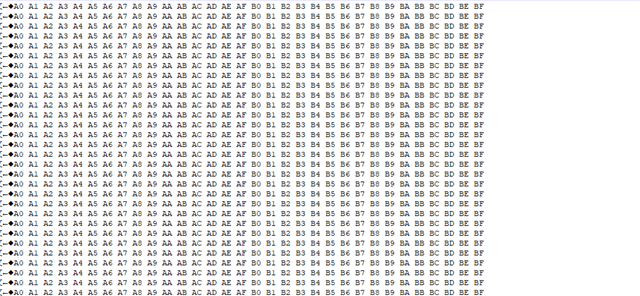Hi everyone:
I want to use UARTE on my FreeRTOS, but when I used the example(examples/peripheral/libuarte) in rtos, something went wrong.
First of all, I tested the example, and it looks like good. When I send slowly, the uart log is here.

and when I send quickly(every 4ms), the uart log is that.

But when I use the UARTE in FreeRTOS, It looks OK when sending slowly, but when I send it every 4ms(I need this frequency), the result is here.

I don't know what's wrong.
Best regards,
Lurn









